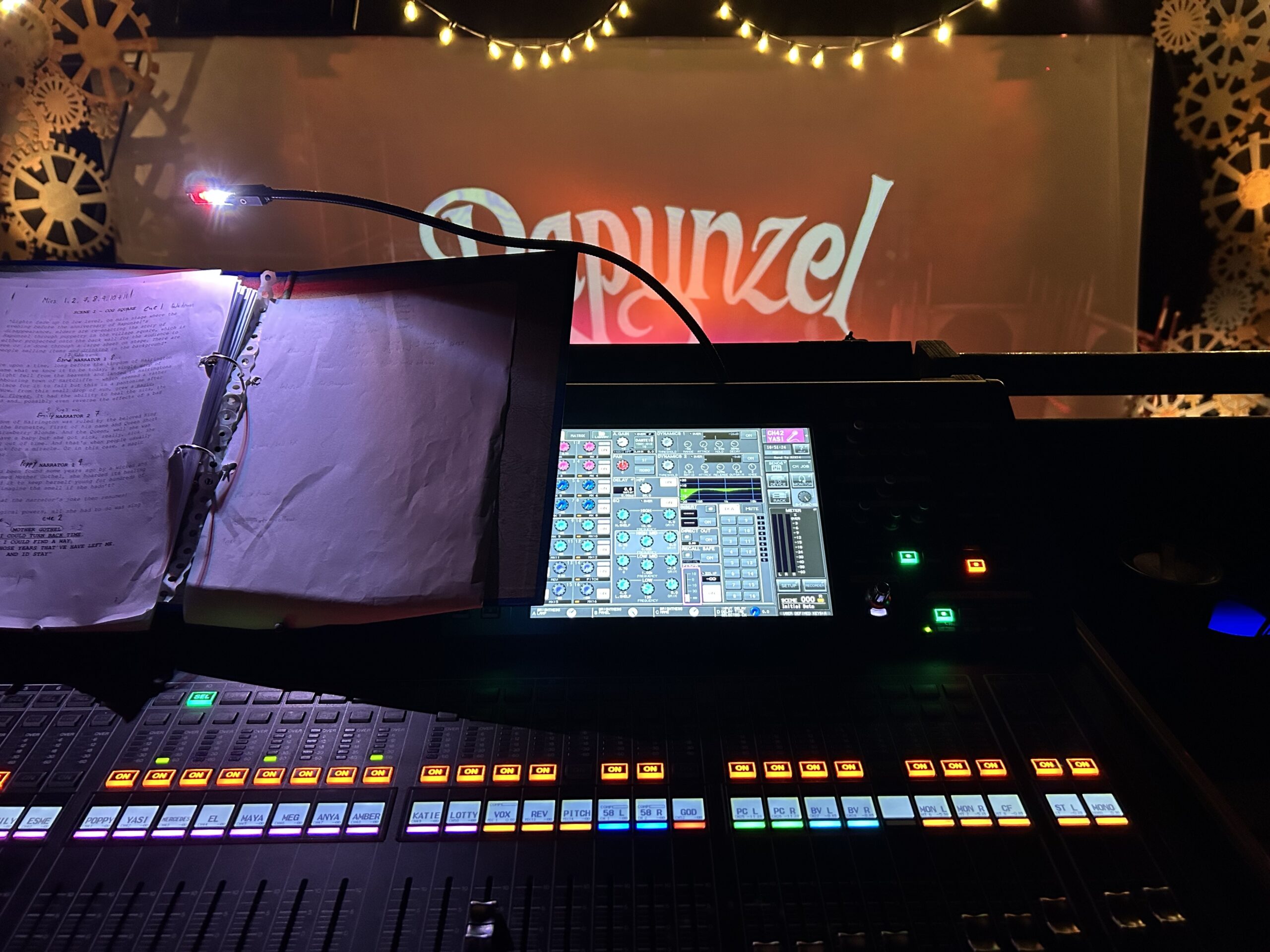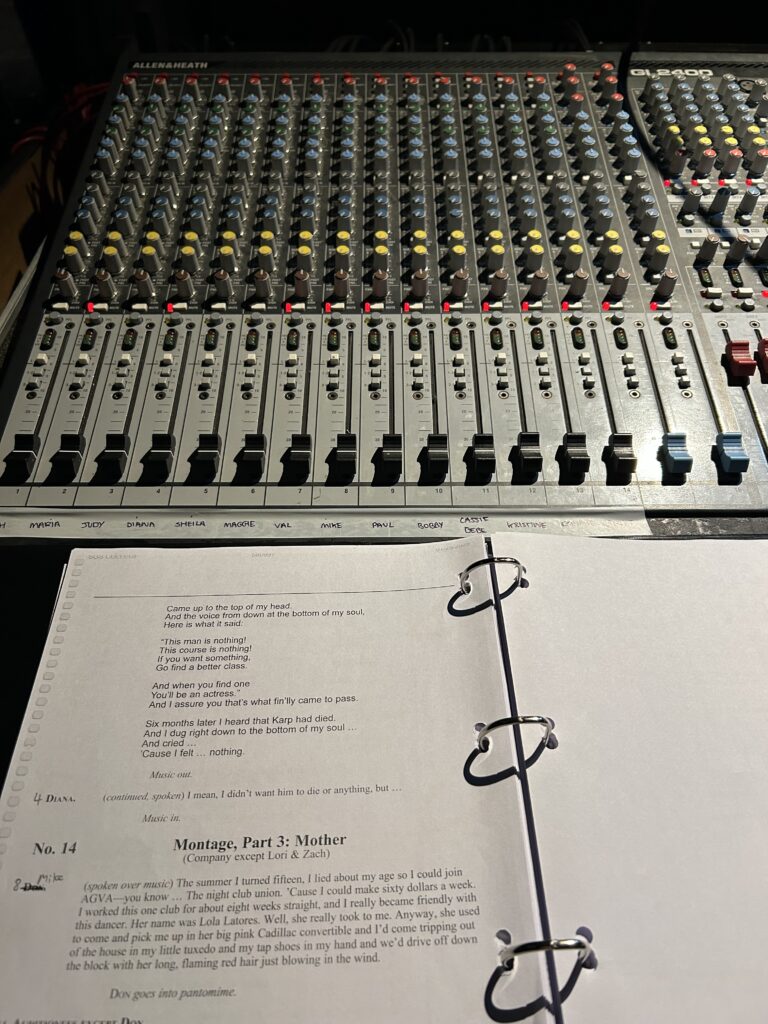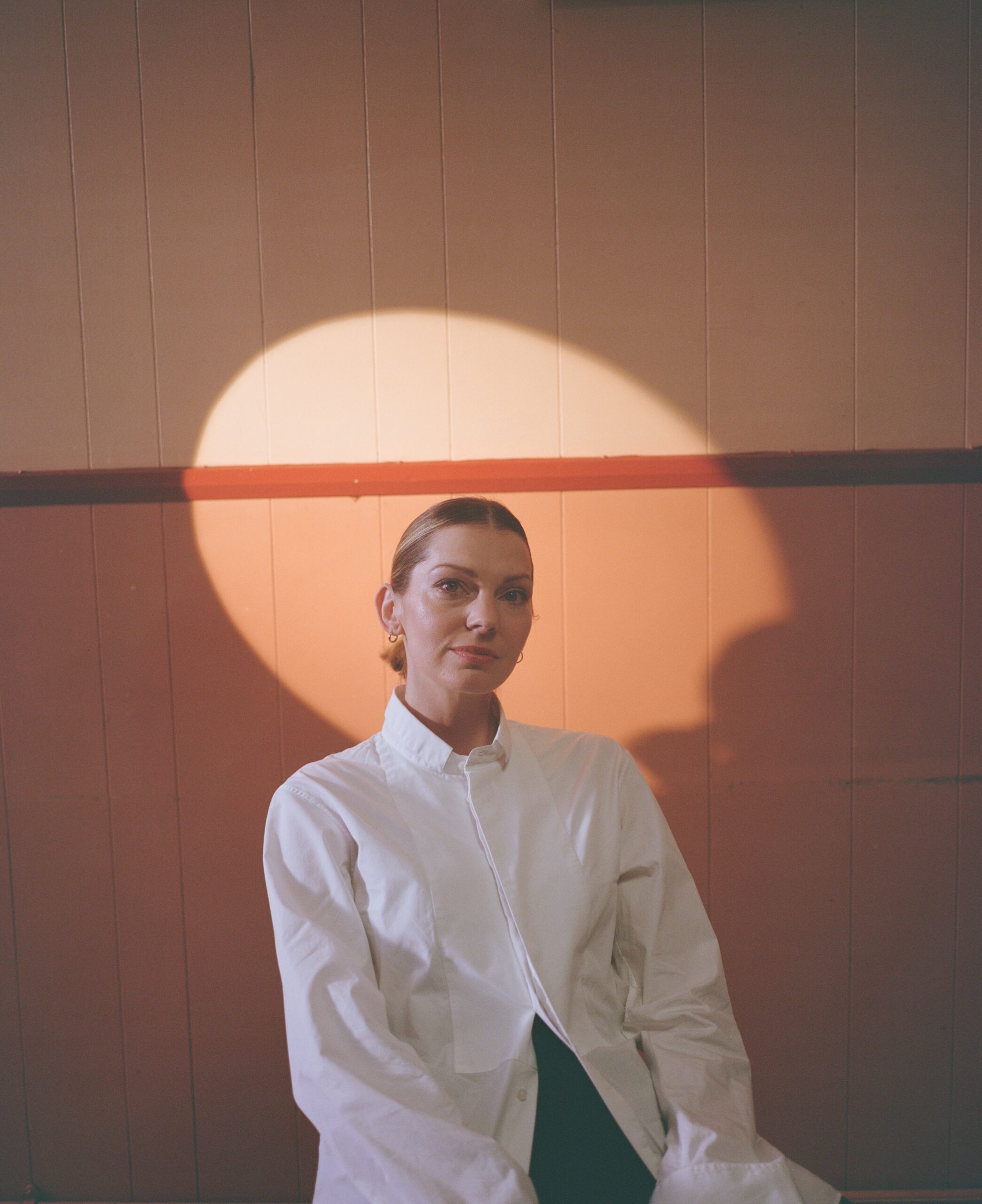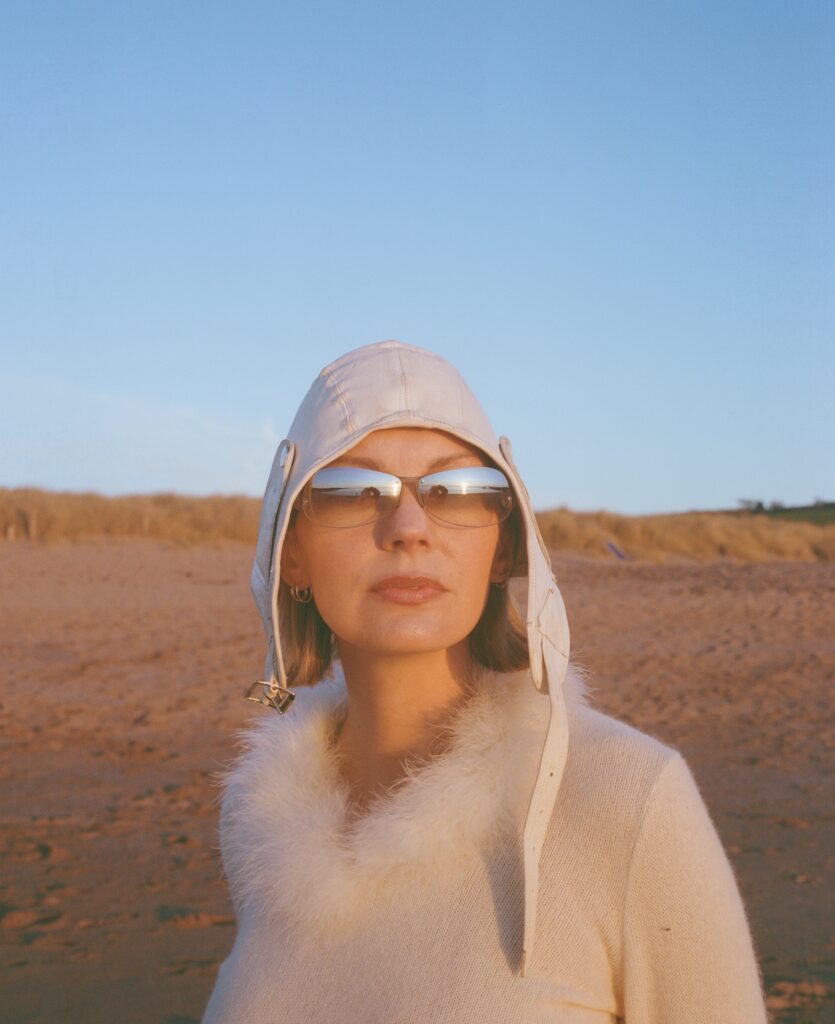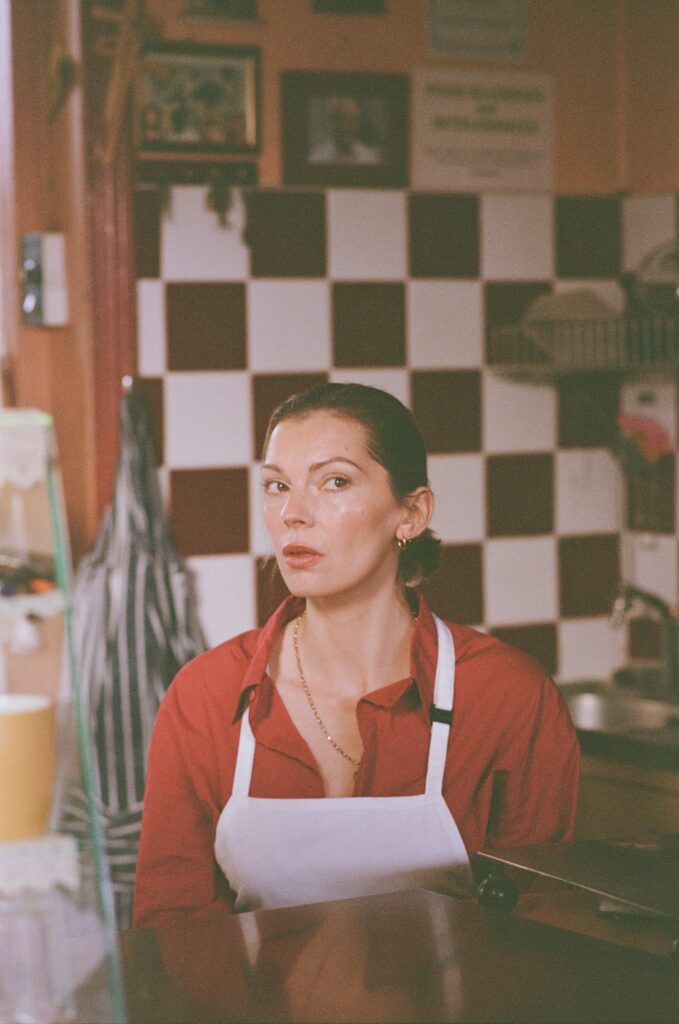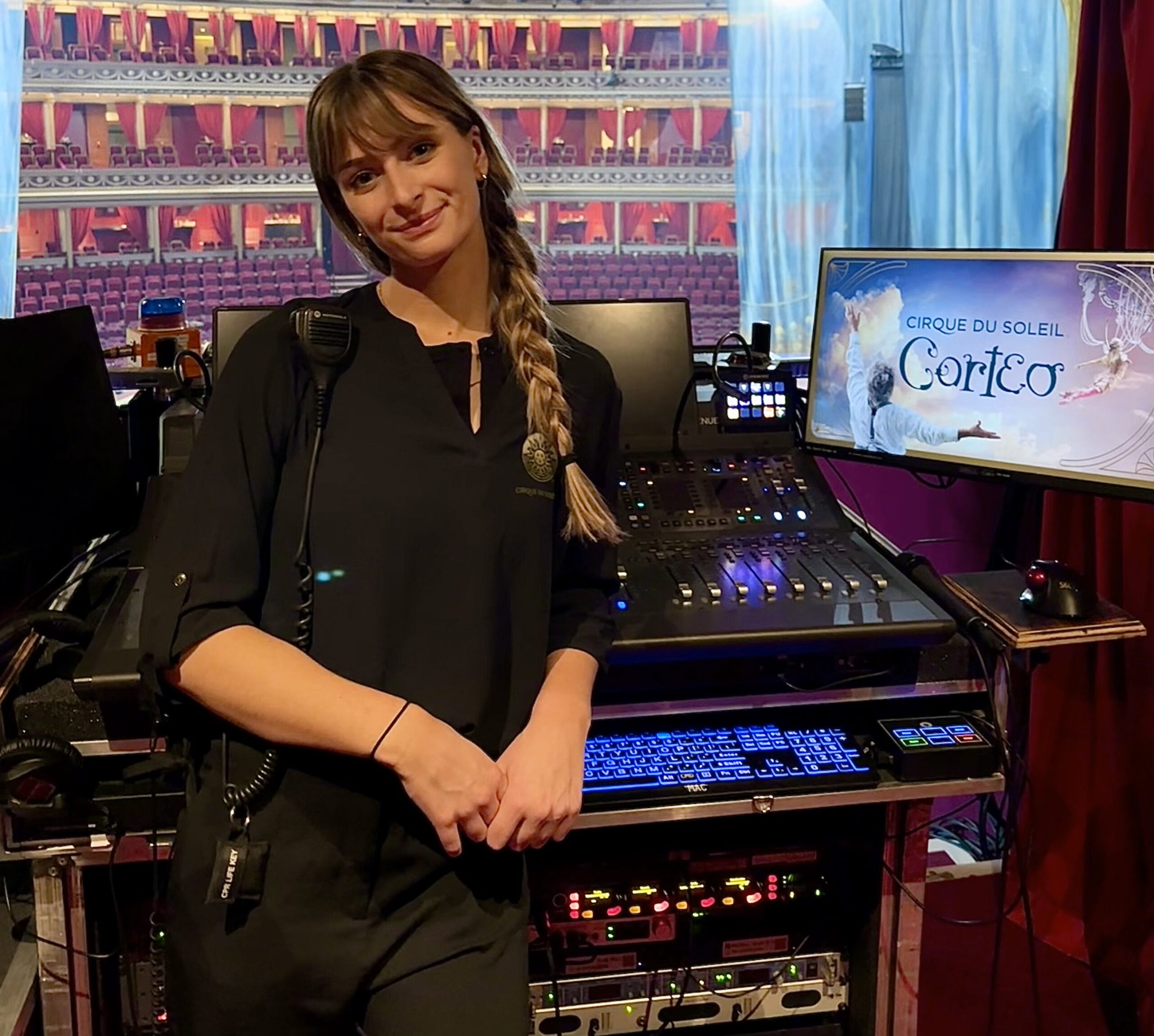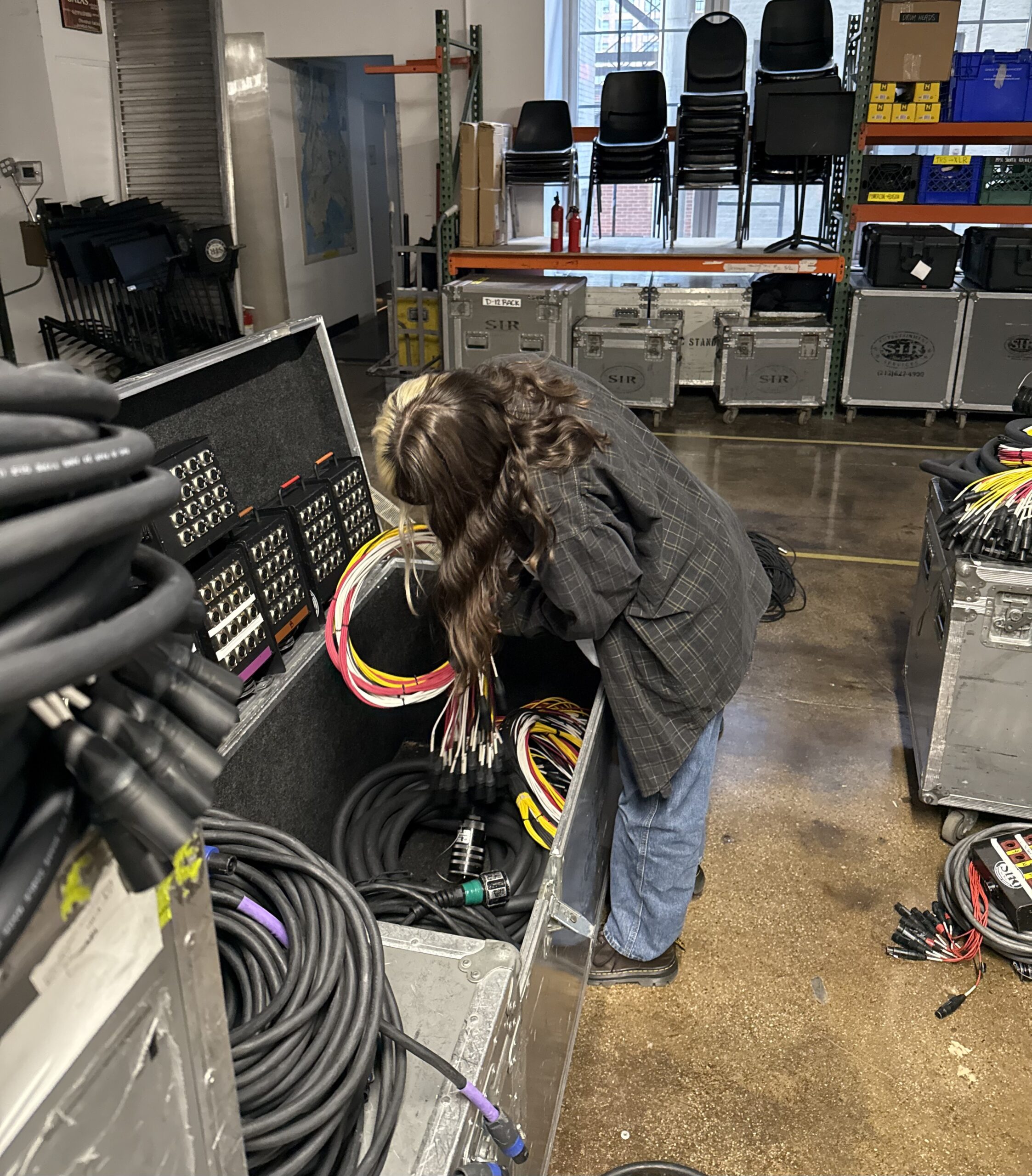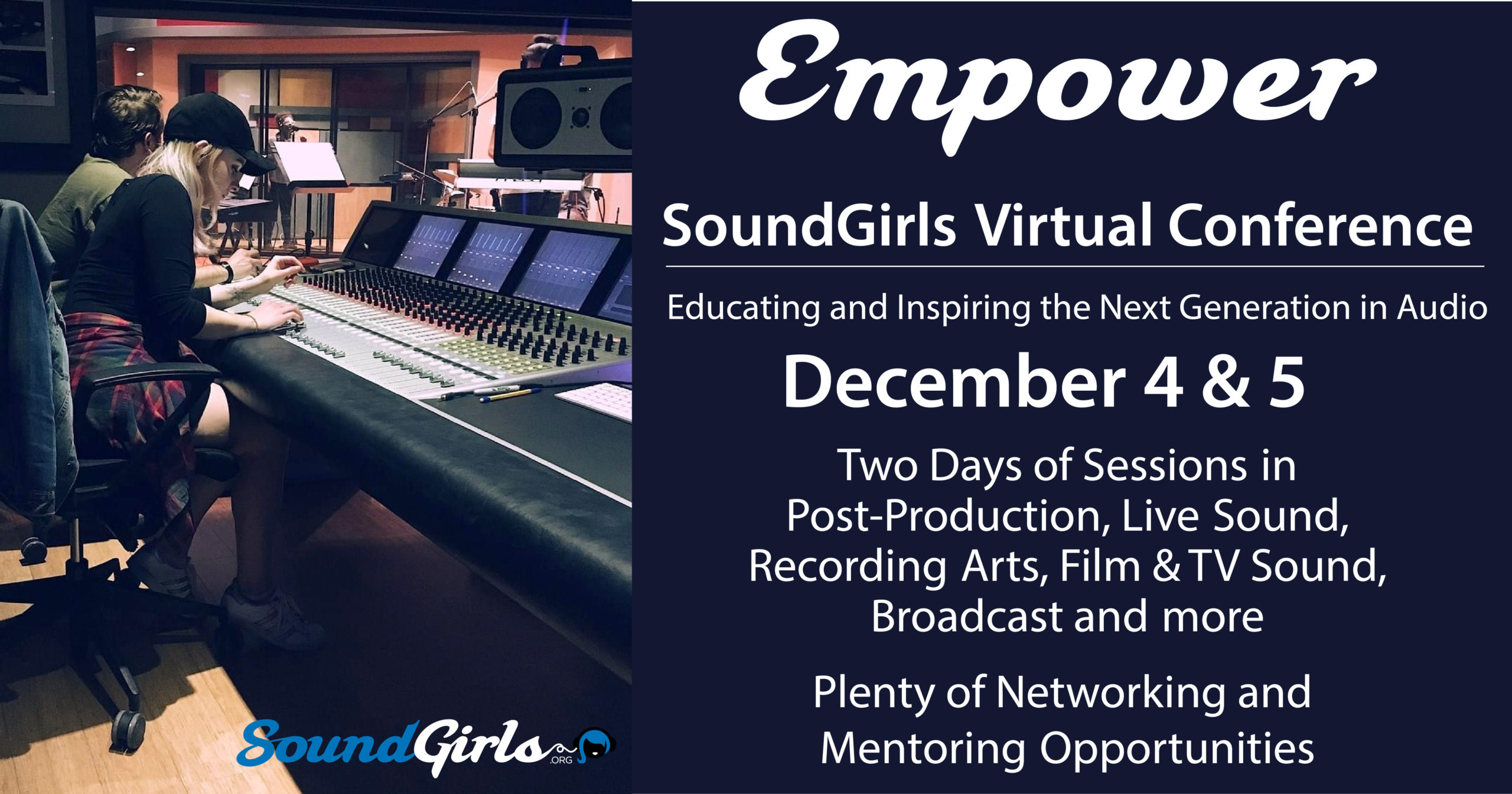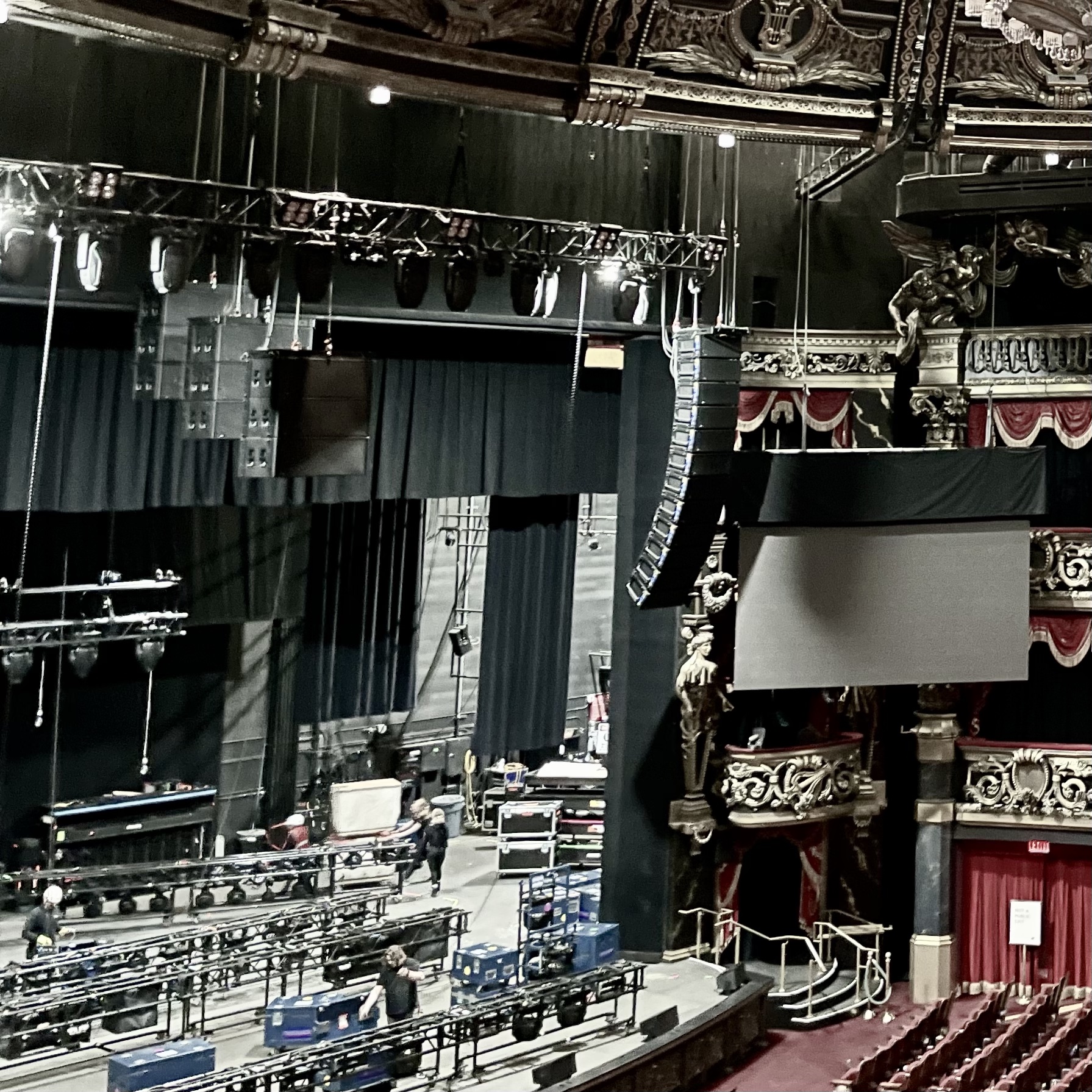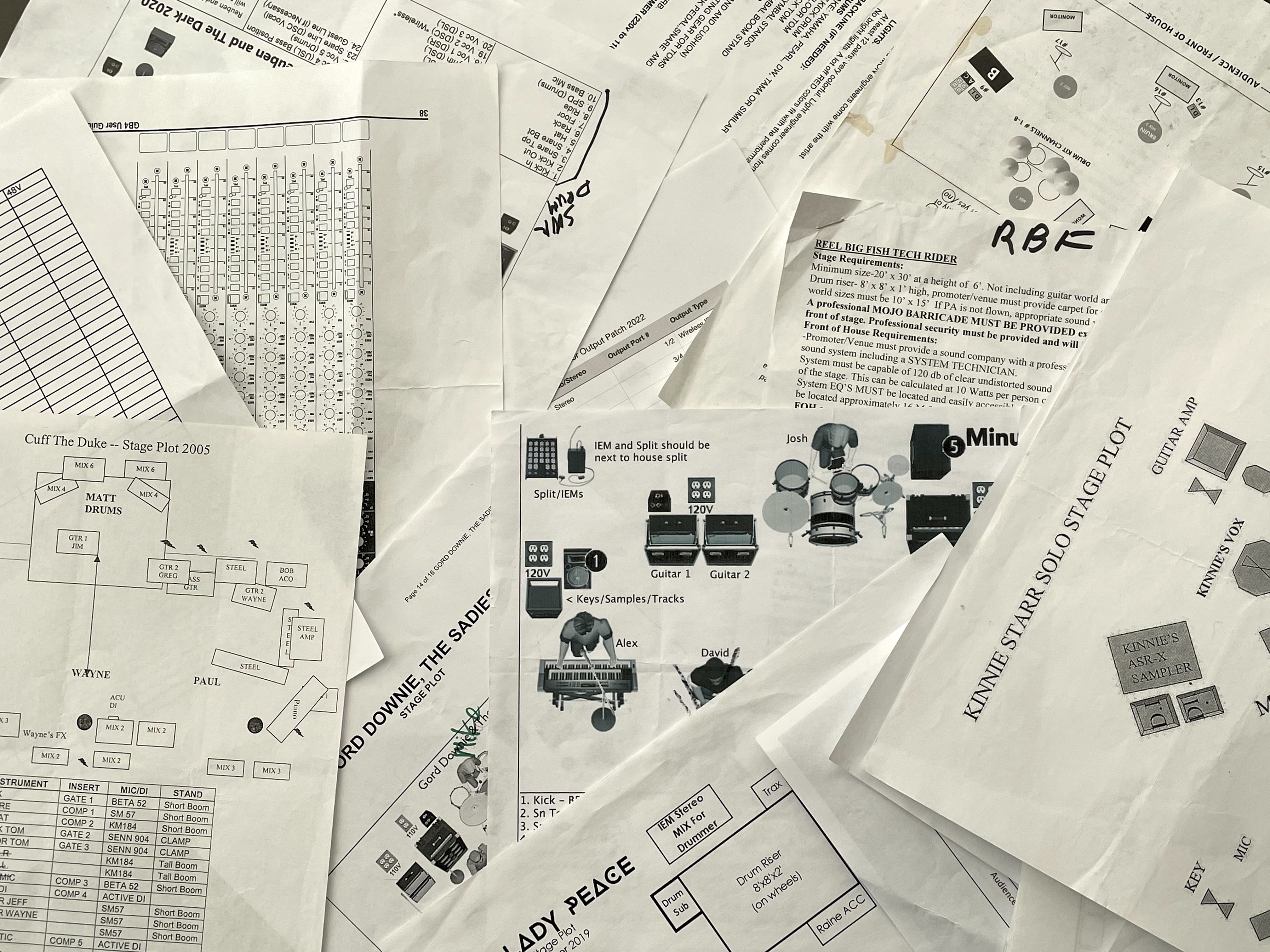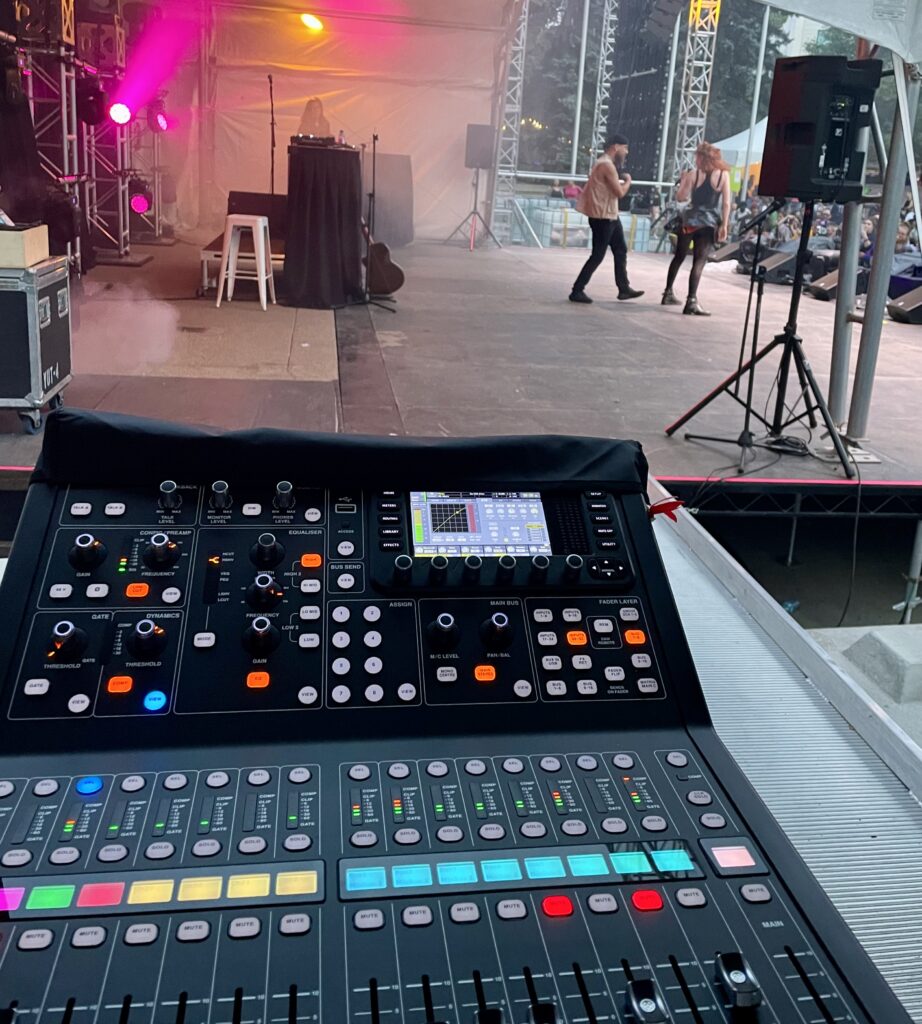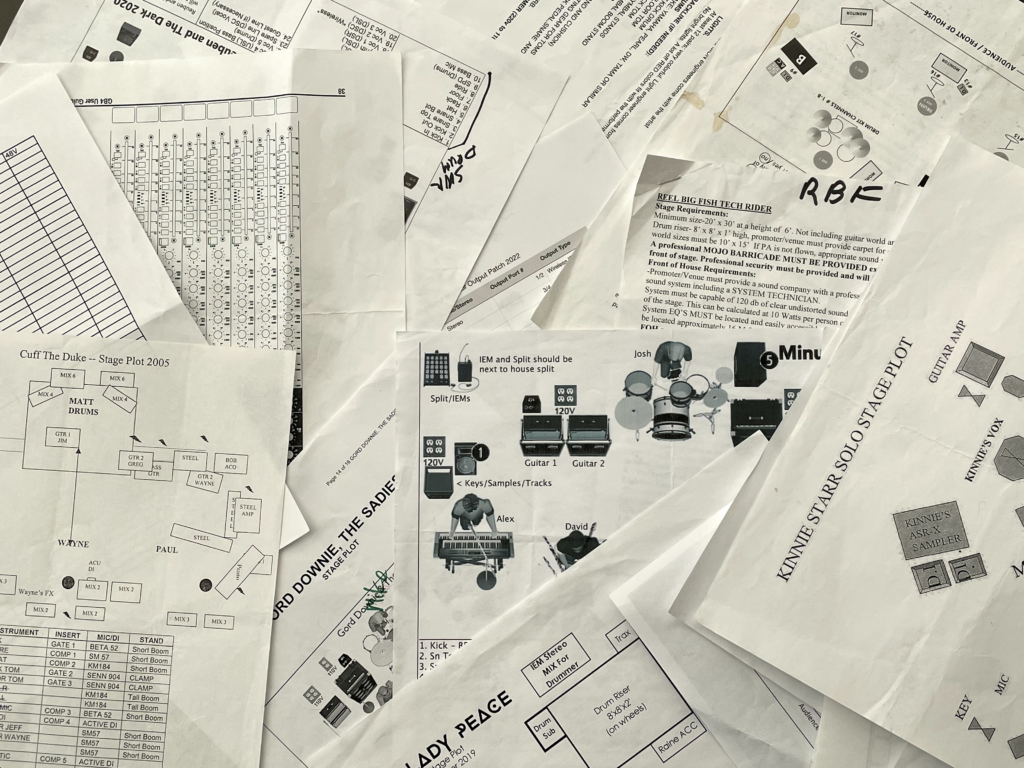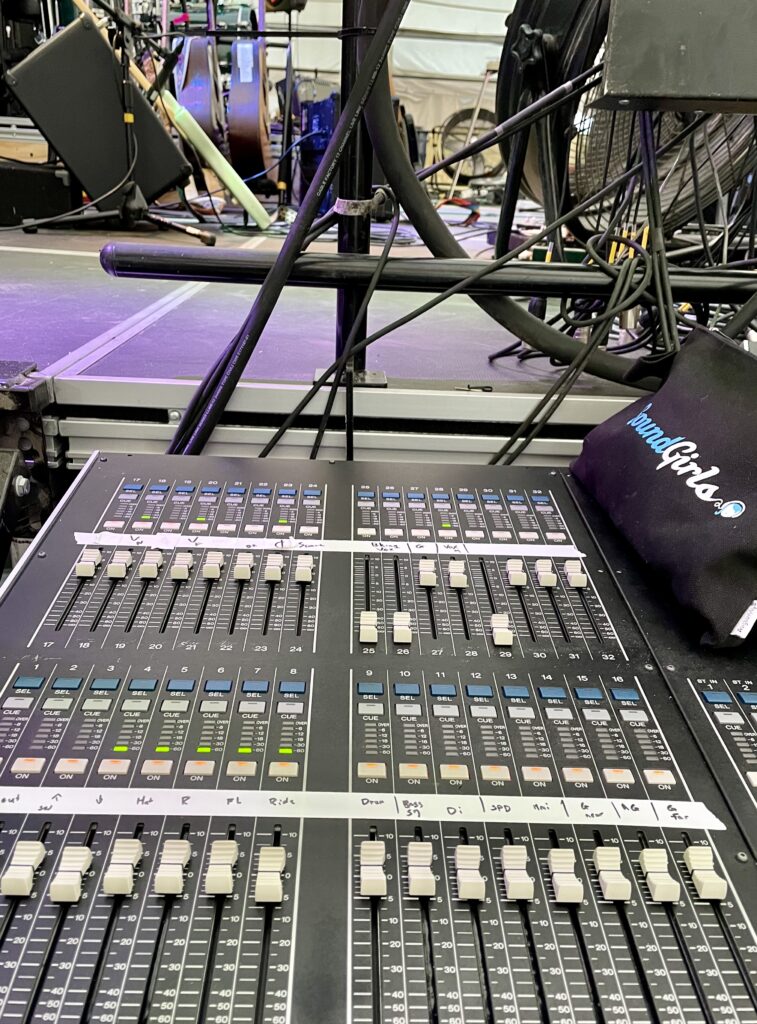Georgia Snudden is a live sound engineer currently working with Corteo by Cirque du Soleil. With a passion for immersive audio experiences and a dedication to technical excellence, she has built a career in live sound, blending creativity with precision to deliver high-quality performances.
Her journey into audio began unexpectedly when she attended a university open day with the intention of pursuing a different path. A chance encounter with the sound course director sparked her curiosity, leading her to explore the world of audio. It was during her studies that she discovered her passion for sound, recognizing the power of music to create unforgettable moments and emotional connections.
Georgia studied at the Western Australian Academy of Performing Arts (WAAPA), where she specialized in Production and Design with a focus on Sound. She graduated with a Diploma, Advanced Diploma, and a Bachelor of Performing Arts in Production and Design (Sound Specialization). Her strong foundation in both technical and creative aspects of audio has been instrumental in shaping her career.
Beginning her professional journey in 2019, Georgia worked for audio hire companies, as an in house theatre technician as well as a freelance mixing engineer and sound designer for theatre before transitioning to a full-time role with Cirque du Soleil in 2023. On Corteo, she primarily serves as the monitor engineer but also rotates between FOH mixing and RF management, ensuring seamless audio for every performance.
Her background in music extends beyond audio engineering—she studied music throughout high school and took vocal lessons for five years. This musical foundation has given her a deep understanding of performance dynamics, allowing her to collaborate effectively with artists and musicians.
Georgia’s early love for music, cultivated through participation in choirs and school bands, shaped her career path and gave her a strong sense of community. Her commitment to excellence in live sound continues to drive her, as she contributes to creating extraordinary experiences for audiences around the world.
Career Start
How did you get your start?
I would say that enrolling in WAAPA honestly opened a lot of doors for me. I think the lecturers, alumni and peers were so incredibly supportive and helpful in establishing industry relationships and there was a really large focus on getting practical hands-on experience which meant I felt really empowered to put myself out there when applying for jobs or internships.
How did your early internships or jobs help build a foundation for where you are now?
I think due to most of my earlier jobs ranging between theatre, studio recording and live audio I was able to build a more diverse skill set and that putting myself in the deep end of multiple disciplines of audio really helped me gain experience quickly.
I would also say that internships played a really crucial role in building the foundation for where I am now. They allow you to learn from a much wider range of people you might not otherwise have the chance to work with. I actually completed the final practical component of my degree doing a work experience placement on Corteo!
What did you learn interning or on your early gigs?
I feel like the most important thing I learned early on is that if you are attentive, have a positive attitude and are willing to put in the work, it really does go a long way.
Did you have a mentor or someone that really helped you?
Over the years I’ve been lucky enough to have multiple mentors who have really helped guide me in building my skills and confidence. I’m extremely grateful for Laurie Sinagra, Ben Collins, Lee Buddle, Elliot Smith and Christian Peterson as well as the entire team over at Perth company AudioTechnik for their time and knowledge. In particular, Andy Walters, who not only taught me an incredible amount but set such a brilliant example of what it means to approach work with patience, resilience and resounding precision.
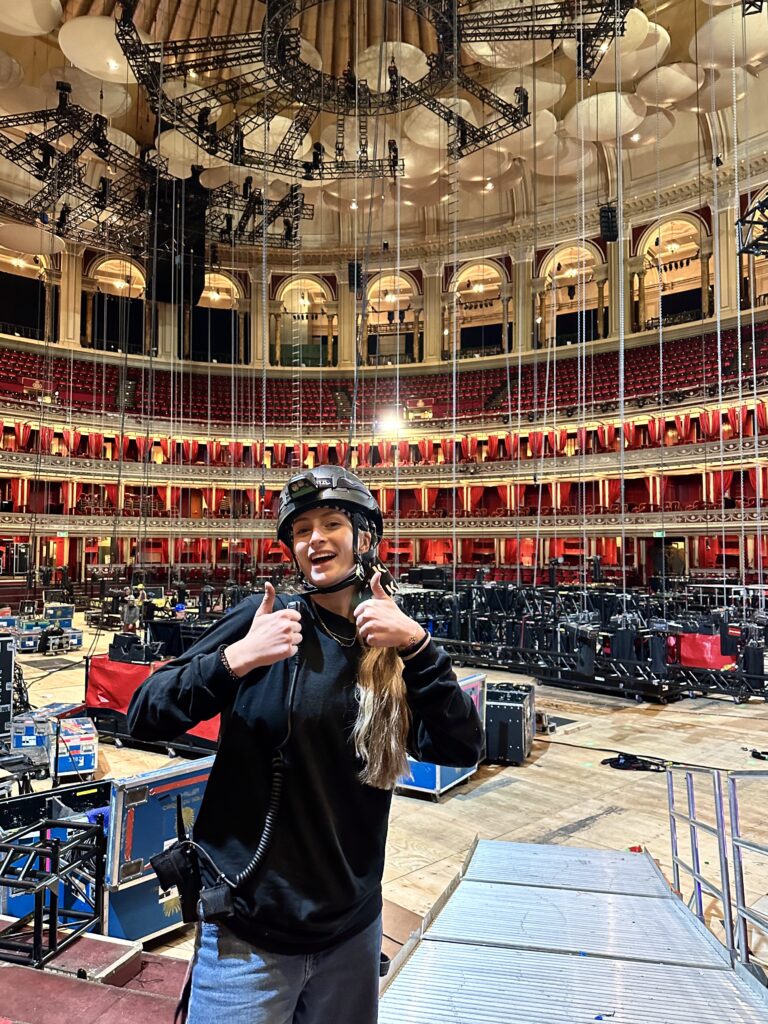
Career Now
What is a typical day like?
Corteo is a touring arena show and we typically stay in each location for a week at a time. This means that typically a week looks something like this;
Monday: Travel / rest
Tuesday: Load In
Wednesday: Premier
Thursday: Shows
Friday: More shows
Saturday: Even more shows
Sunday: A couple more shows and then Load Out / + maybe travel
A typical day just running only one or two shows normally starts around midday. I’ll come in and see if there’s anything to troubleshoot or fix, if not I’ll keep working on whatever projects I am at the time. During some days we might have extra rehearsals, meetings, advance first aid training or show scenario sessions to attend also. Around 5pm we’ll have a sound check with the band, finish off whatever presets we might need, grab a bite to eat and get ready for the show. Once the show is done, we do whatever offsets we need to do to be ready for the following day and head back to the hotel!
How do you stay organized and focused?
Whenever I feel myself becoming slightly overwhelmed with work or darting between tasks without a plan I like to take the time to sit down, reassess what my goals and priorities are for the day and what I want done by the end of the week / month. I like to then write out a checklist on paper, breaking up larger projects into more achievable daily tasks if need be. It’s simple but it works!
What do you enjoy the most about your job?
I’d say that the highlight of working for Cirque du Soleil is that we each get to play a role in highlighting the immense talent and hard work the performers put in every show to help make some beautiful memories for those who come to watch. To see people staring up in awe, holding their breath or cheering being completely engaged in the show is the best feeling.
On the technical side I think what I enjoy most about working on Corteo is that although the audio department is a team of four, when we run the shows we actually rotate positions. My main position is as the primary monitor engineer, however I also mix the show out at FOH, run the RF track backstage as well as rotate responsibilities with the system tech every other week taking measurements, doing up a PA plan, tuning the PA and so on.
Another thing I really enjoy about working on Corteo is the music. Not only it is diverse in itself but the live band of 8 players perform in a manner that is both succinct and seamlessly ever changing. Guided by their bandleader, Philippe Poirier, the band accompanies the performers onstage. Tailoring their performance to every twist, turn, catch and leap as well the unpredicted, in the moment, as it happens. They deliver every performance with such consistency all whilst providing each show with its own improvised adornment of musical accents, solos and improv. It’s truly remarkable!
What do you like least?
I feel really lucky that this question is hard to answer! I honestly don’t think I have a least favorite aspect, I really do just enjoy going to work!
If you tour, what do you like best?
I think what I enjoy most about touring is that it’s a constantly changing environment. Being able to perform in a different venue each week means that every week we are delivered a new set of challenges to solve. It also means I’ve had the privilege of touring through some really interesting places and venues.
At the start of the year we began a residency at London’s Royal Albert Hall that runs until March 2nd. Fitting such a complex 2 sided show like Corteo into a historic venue of this nature meant that every tiny detail had to be planned and prepared for. It was incredibly logistically challenging but also so incredibly rewarding!
We are also traveling to Australia later this year which I couldn’t be more excited for. Not only do I finally get to bring my family and friends into my working world away from home, but I get to show my touring family on Corteo all the beauty Australia has to offer. Bringing Corteo to my home city of Perth will definitely be a huge full circle, pinch me moment for sure.
What do you like least?
One thing I do find difficult whilst being on tour is definitely being able to establish a sense of routine. It takes quite a lot of self discipline to keep yourself consistent. It’s gotten easier over time but is something I’m still definitely working on!
What is your favorite day off activity?
My perfect day off if I have enough energy normally consists of getting in some exercise, finding a good spot for brunch, a bit of relaxing or exploring and then heading out somewhere for dinner or a drink.
What are your long term goals
One of my goals is definitely to tour more within the live music scene, to work on large scale concerts, arenas and stadiums. I’m also really focused on honing my skills as a system tech so that’s also something I’m hoping to do a lot more of in the future.
What if any obstacles or barriers have you faced?
I would say that my largest obstacle or barrier has been navigating my own self doubt and confidence. When I reflect back on any missed opportunities they almost always coincide with hesitations caused by not really believing in myself enough.
How have you dealt with them?
I think it became a lot easier when I realized that if I approached each situation with confidence (even if it was sometimes pretend confidence) that those feelings of self doubt would subside. Before I enter new environments, I feel it’s really important to do a self check in, so I can assure I’m approaching each new situation with confidence instead of analyzing everything through the lens of self doubt.
Advice you have for other women who wish to enter the field?
I used to have this subconscious notion that the certain dreams or goals I had were ‘for somebody else’ or that ‘I could never do that’. So I think my advice to share with anybody hoping to enter this industry would probably be that when the only thing holding you back is a limiting idea you have of yourself, to just give it a go and be your own advocate. It can be challenging but I found that voicing my goals or areas I want to develop my skills in to those around me didn’t result in them thinking less of me, it resulted in me being placed in positions where I was pushed to learn and succeed.
Think of all the things you’ve already achieved that you weren’t even sure you could… and remember that’s only the beginning!
Must have skills?
I honestly think the most useful skills within this industry are interpersonal. There might be a lot of people with the technical capabilities for a role but when you’re immersed in team environments in almost everything you do constantly, it can be those interpersonal skills that are truly make or break. Having a strong sense of communication and paying attention to the communication styles of those around you and being able to adapt to them can really make such a difference.
On the technical side I would probably say having a good understanding of audio networking systems is something I wish had begun studying sooner!
Favorite gear?
Besides the trusty multitool, tape and sharpie that live in my load in pants pocket I don’t really think I have any favorite gear to be honest. On Corteo we’re lucky enough to have ample toolkits at our disposal so I’ve been avoiding those ‘Oh I wish I bought this with me’ moments for a good while now!
Socials:
https://www.instagram.com/georgieeie_/
Linkedin:
www.linkedin.com/in/georgia-snudden-3a4a93222
